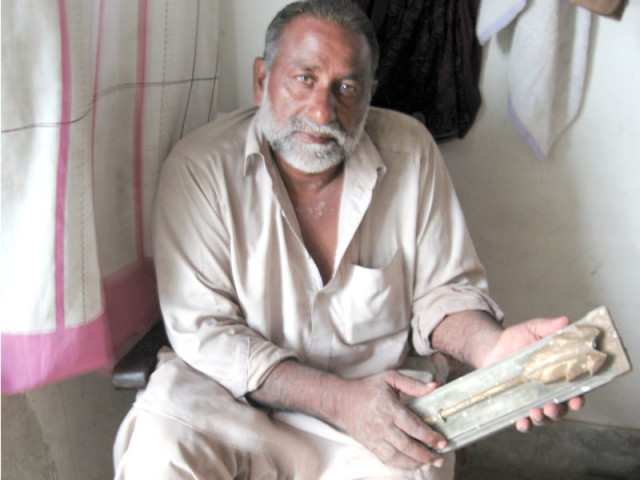Despite quota, minorities beg for work
Minority MNAs have asked the prime minister to resolve the issue.

“I stopped studying when I saw that my brother who was a graduate just could not find a job,” says Shahid Manzoor, a resident of Gojra’s Christian Colony. When his brother was finally employed by Unilever, a multinational, Manzoor saw hope. He managed to find work as a marketer in Faisalabad.
Another Gojra resident works as a bootlegger. He sheepishly explained, “There are no jobs, so I have to do this.” The current government allocated a five per cent quota for minorities for federal jobs, but Manzoor says it requires contacts and bribes to secure an appointment.
According to State Minister for Interfaith Harmony and Minorities Affairs Akram Masih Gill, the issue of quotas was brought up by minority parliamentarians in a meeting with Prime Minister Yousaf Raza Gilani last Saturday. “The prime minister has asked for a report on the quota’s implementation and the hurdles that are faced,” Gill said, adding, “We have also asked for the five per cent quota to be implemented in the military and the judiciary. Currently, the military’s quota for minorities is one per cent. With five per cent, at least 30,000 people can be employed.”
The problem isn’t just the number of jobs, but the continuous discrimination in recruitment and at the workplace. In June, the Pakistan Muslim League-Nawaz government in Punjab planned to not have cabinet member Kamran Michael present the budget for fear of upsetting its conservative vote bank. The decision was overturned after the discriminatory behaviour was disclosed in a report by The Express Tribune.
Quoting several examples of discrimination in employment such as selecting minorities for police jobs on merit instead of reserved quota, Gill said it is “important for attitudes to change. Otherwise the ill-feeling and economic conditions of minorities will not improve”. There can be repercussions. “There are several constituencies where there is a minority vote in tens of thousands. When their representatives can’t deliver, they won’t be voted in.”
It does not end there. Minorities are discriminated against at schools and colleges, both as students and as faculty members. Zakia Begum, who taught for over two decades at a girls’ high school in Mardan, was told that she could not teach Islamiat after Ahmadi-specific laws were passed in 1984.
Major-General (retd) Dr MMH Nuuri, who served as a cardiologist in the Pakistan Army and now heads the Tahir Heart Institute in Rabwah, says his experience in the army had little to do with his faith. “There is discrimination, but I was also promoted to the highest rank available,” he said. Dr Nuuri, who also served on General Ziaul Haq’s medical team, however added, “There were times when my promotions were delayed for long periods of time.”
He recalled a pivotal moment in the army after the constitution was amended in 1984. “I was asked to sign a statement similar to the declaration in the passport form. I crossed out the word non-Muslim and the entire section targeting Ahmadis. How could I accept this?” Dr Nuuri was called before the adjutant-general, who asked if he knew the consequences of his refusal to sign the form. “This is a court-martial offence,” he was told. “What have the other generals written?” the adjutant-general asked, referring to high-ranking Ahmadi officers. Their forms were called for, and they had similarly crossed out the sections they disagreed with. It turned out that over 200 officers had done this. “They could have court-martialled all of us,” recalls Dr Nuuri. “General Zia had passed the order; they would not have had an issue. But what would it have done for the military?”
While a crisis was averted then, the current state of minorities and their future has raised alarm bells. After meeting the prime minister, Gill was hopeful that the issues raised will be dealt with. However, implementation remains a pipe dream for those struggling to get hired.
Published in The Express Tribune, July 5th, 2011.



















COMMENTS
Comments are moderated and generally will be posted if they are on-topic and not abusive.
For more information, please see our Comments FAQ